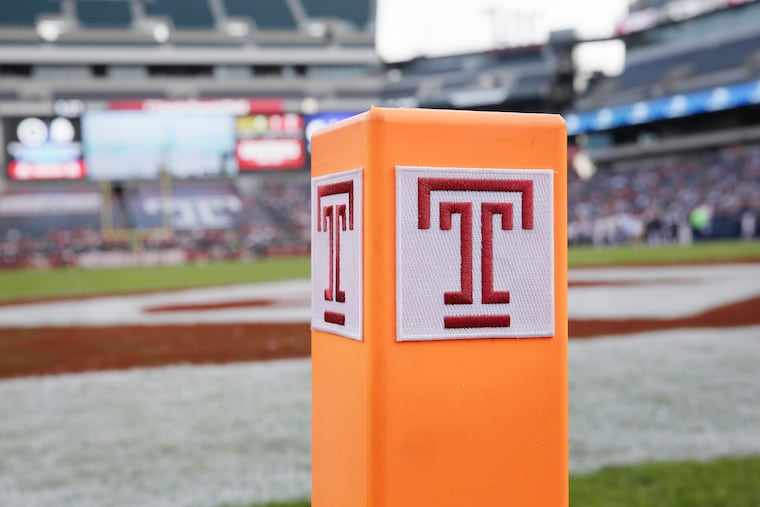Temple football signs contract extension with Eagles to play at least five more years of home games at Lincoln Financial Field
The deal is for up to 10 years: a five-year agreement with a five-year option for Temple.

Temple and the Eagles have agreed to a contract extension that will allow the Owls to continue playing home football games at Lincoln Financial Field for at least five more seasons.
The deal includes a five-year option for the Owls beyond the first five seasons.
Temple still hasn’t given up the hope of building its own stadium. The strong preference is for an on-campus stadium, but all ideas are on the table, according to multiple sources.
Temple originally signed a 15-year agreement to play at the Linc that expired after the 2017 season. In that deal, the payment of $15 million was made up front. After the 2017 season, Temple had two one-year options and exercised both. The second option expired after this past season.
Those one-year deals cost more per year than the $1 million average of the previous deal, according to a Temple source. Another source familiar with negotiations said the fee was comparable after taking into account inflation and the present-day value of the original deal.
Financial terms of the extension are not known.
Temple’s original plan was to build an on-campus stadium off 15th Street. But for that to happen, it will need 15th Street to be closed for good along the two blocks between Norris Street and Montgomery Avenue. The school has not received the legislative permission to do so.
Neighbors in the area have opposed the proposed 35,000-seat stadium, which has been projected to cost $130 million.
Multiple sources have said Temple has looked into building the stadium on another part of campus if the university cannot get approval for its desired site.
Discussions have included building an off-campus stadium, but several Temple sources said the school preferred having a stadium on campus. The school thinks it will be more profitable to own its own stadium.
In addition to paying the rental fee, the school received no revenue from parking and only 10% of concessions in the Linc deal, according to a Temple source. Another Temple source estimated that with game-day expenses such as security and other personnel, it probably costs, including the rent, $3 million a year to play at the Linc.
Another source said there hasn’t been any recent progress toward a new stadium.
No matter what happens, Temple knows it will have a place to play for up to 10 years.
In a phone interview, Temple president Richard M. Englert declined to talk about a new stadium, saying he was thrilled to continue the relationship with the Eagles. Englert disputed the assumption that the five-year option was put in so Temple could have its own stadium after that point.
“Whenever you do a multiyear agreement, you put in an option,” Englert said. “You can’t predict what the world will be like in five years from now, 10 years from now, 20 years from now. The reality is that it’s not just for this stadium with the Eagles. It is for most anything we do, putting in an option on any multiyear deal.”
Capacity at the Linc is 69,796, and Temple hasn’t been able to fill half the stadium in most games. Here are Temple’s announced home attendance averages (and overall records) in recent seasons, according to NCAA.org and the American Athletic Conference, the Owls’ league.
2019: 29,460, 8-5
2018: 28,470, 8-5
2017: 27,318, 7-6
2016: 27,225, 10-4
2015: 44,159, 10-4
2014: 23,370, 6-6
The 2015 season included home sellouts against Penn State and Notre Dame.
“We are pleased to extend our agreement with Temple University,” Eagles president Don Smolenski said in a statement. “We have enjoyed a great relationship for the past 17 seasons, as our staffs have worked together to make Lincoln Financial Field the home for Temple football. We look forward to continuing the tradition into the future.”
According to many players over the years, the Linc has been an attractive place to play. Coaches have indicated it is a good selling point in recruiting and several of the current Temple players have said that playing in an NFL stadium is important.